Best Foods for Pregnant Women: Healthy Diet for Pregnancy
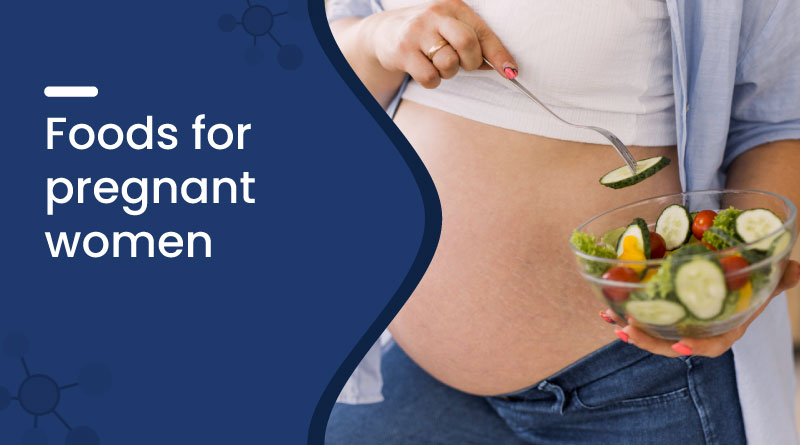

When a woman is pregnant, she does not eat only to nourish her body but also for the baby she’s carrying. What she eats directly impacts the development and well-being of the baby, which is why during pregnancy, eating the right food is crucial for fetal growth, boosting the mother’s immunity, improving energy levels, and also reducing the risk of complications related to pregnancy. Here's a quick guide to the key nutrients and the best foods to include.
List of the Most Healthy Nutrients and Foods
Protein: For Growth and Development
Protein is vital for the growth of fetal tissues, including the brain, and also supports the mother’s expanding tissues, such as the uterus and breasts. A protein-rich diet helps in the production of enzymes and hormones while also keeping blood sugar levels stable.
- Lentils and legumes
- Eggs
- Paneer (cottage cheese)
- Lean meats and poultry
- Greek yogurt
- Nuts and seeds
Folic Acid (Vitamin B9): For Neural Tube Development
Folic acid helps prevent major birth defects in the baby’s brain and spine, especially during the early weeks of pregnancy. Including Folic acid supplements and natural sources of folate can significantly lower the risk of neural tube defects.
- Spinach
- Broccoli
- Citrus fruits
- Avocados
- Fortified cereals
- Beetroot
Iron: To Prevent Anemia
Iron supports increased blood volume during pregnancy and helps transport oxygen to the baby. An inadequate amount of iron in the body can cause fatigue, low immunity, and anemia. Pairing iron-rich foods with Vitamin C (like amla, orange, or lemon) enhances absorption.
- Spinach and other leafy greens
- Beetroot
- Dried fruits like apricots and raisins
- Red meat
- Legumes
- Iron-fortified cereals
Calcium: For Bone and Teeth Formation
Calcium helps build strong bones and teeth for the baby, while also keeping the mother’s bone health intact. It also helps in the formation of the baby's skeletal system. You can also take calcium tablets, but first consult a doctor.
- Milk and dairy products
- Ragi (finger millet)
- Almonds
- Sesame seeds
- Leafy greens like kale and amaranth
- Tofu
Omega-3 Fatty Acids: For Brain and Eye Development
DHA, a type of omega-3 fatty acid, is crucial during pregnancy for the baby’s development and the mother’s overall well-being. These healthy fats also support mood stability and may help reduce the risk of postpartum depression.
- Flaxseeds
- Chia seeds
- Walnuts
- Fish like salmon or sardines (well-cooked and mercury-free)
- Soybeans
Also read - Best Omega-3 Supplement In India
Fiber: To Prevent Constipation
The intake of several medications, supplements, and hormonal changes results in constipation. A fiber-rich diet helps maintain smooth digestion. Staying hydrated along with a fiber-rich diet can promote better digestion throughout pregnancy.
- Whole grains like oats and brown rice
- Apples, pears (with skin)
- Guava
- Carrots
- Ash gourd (petha)
- Beans and lentils
Vitamin D: For Immunity and Bone Health
Vitamin D helps the body absorb calcium and strengthens the immune system for both mom and baby. A deficiency during pregnancy may increase the risk of gestational diabetes and low birth weight.
- Sunlight exposure (10–15 minutes daily)
- Fortified milk and cereals
- Mushrooms
- Egg yolks
- Fatty fish
Also read - Vitamin D Supplement In India
Hydration: Often Overlooked, Always Essential
Water supports digestion, circulation, and the formation of amniotic fluid. It also helps prevent urinary tract infections and swelling. Avoid sugary drinks, excessive caffeine, and artificial sweeteners.
- Water (8–10 glasses daily)
- Coconut water
- Herbal teas (consult doctor)
- Fresh fruit juices (no added sugar)
What To Avoid During Pregnancy?
Despite the huge cravings that often come with pregnancy, certain foods and habits should be strictly avoided to protect both the mother and the developing baby.
- Unpasteurized dairy or juices: Risk of listeria and other infections.
- Excess caffeine: More than 200mg per day should be avoided as it may raise risks of miscarriage, low birth weight, and other complications.
- Alcohol and tobacco: Both are linked to serious birth defects and developmental issues.
- Processed or junk food: High in sodium, unhealthy fats, and sugars can lead to excessive weight gain and gestational issues.
Conclusion
A healthy pregnancy begins with mindful eating. Including the right nutrients and avoiding harmful foods can make a big difference for both the mother and baby. Focus on balance, variety, and quality to support a smooth and healthy journey to motherhood.
Frequently Asked Questions (FAQs)
Q. Which nutrient matters most during pregnancy?
A. Folic acid is crucial in early pregnancy to prevent birth defects, but all nutrients, like iron, calcium, and protein, play important roles.
Q. Can I eat fruits during pregnancy?
A. Yes, fruits like bananas, apples, oranges, and guava are rich in vitamins and fiber and must be included in the diet during pregnancy.
Q. Is drinking coffee safe in pregnancy?
A. Yes, it is safe, but only in limited amounts, about one cup a day.
Q. Is it fine to have street food during pregnancy?
A. It is best to avoid street food during pregnancy due to hygiene concerns and risks of infection.
Iron (100 mg) + Folic Acid (1.5 mg) + Vitamin B12 (0.0075 mg)
10 Tablets In 1 Strip
Folic Acid (5mg)
30 Tablets in 1 strip
Alpha Lipoic Acid (100mg) + Methylcobalamin (1500mcg) + Vitamin B6 (3mg) + Folic Acid (1.5mg) + Benfotiamine (50mg) + Biotin (5mg) + Chromuim (200mcg)
10 Capsules In 1 Strip
Iron (60 mg) + Folic Acid (1 mg) + Vitamin B12 (0.005 mg) + Lysine (70 mg)
200 ml. Syrup
Ginseng Extract Powder (42.5 mg) + Vitamin A (750 mcg) + Vitamin B1 (1 mg) + Vitamin B2 (1.5 mg) + Vitamin B6 (1 mg) + Vitamin B12 (1 mcg) + Vitamin C (50 mg) + Vitamin D3 (5 mcg) + Vitamin E (5 mg) + Folic Acid (150 mcg) + Vitamin B3 (10 mg) + Vitamin B5 (5 mg) + Calcium (75 mg) + Phosphorus (58 mg) + Copper (0.5 mg) + Iodine (0.1 mg) + Ferrous Fumarate (30 mg) + Magnesium (3 mg) + Manganese (0.5 mg) + Potassium (2 mg) + Zinc (10 mg)
10 Capsules in 1 strip
Recent Blogs
Disclaimer : Zeelab Pharmacy provides health information for knowledge only. Do not self-medicate. Always consult a qualified doctor before starting, stopping, or changing any medicine or treatment.

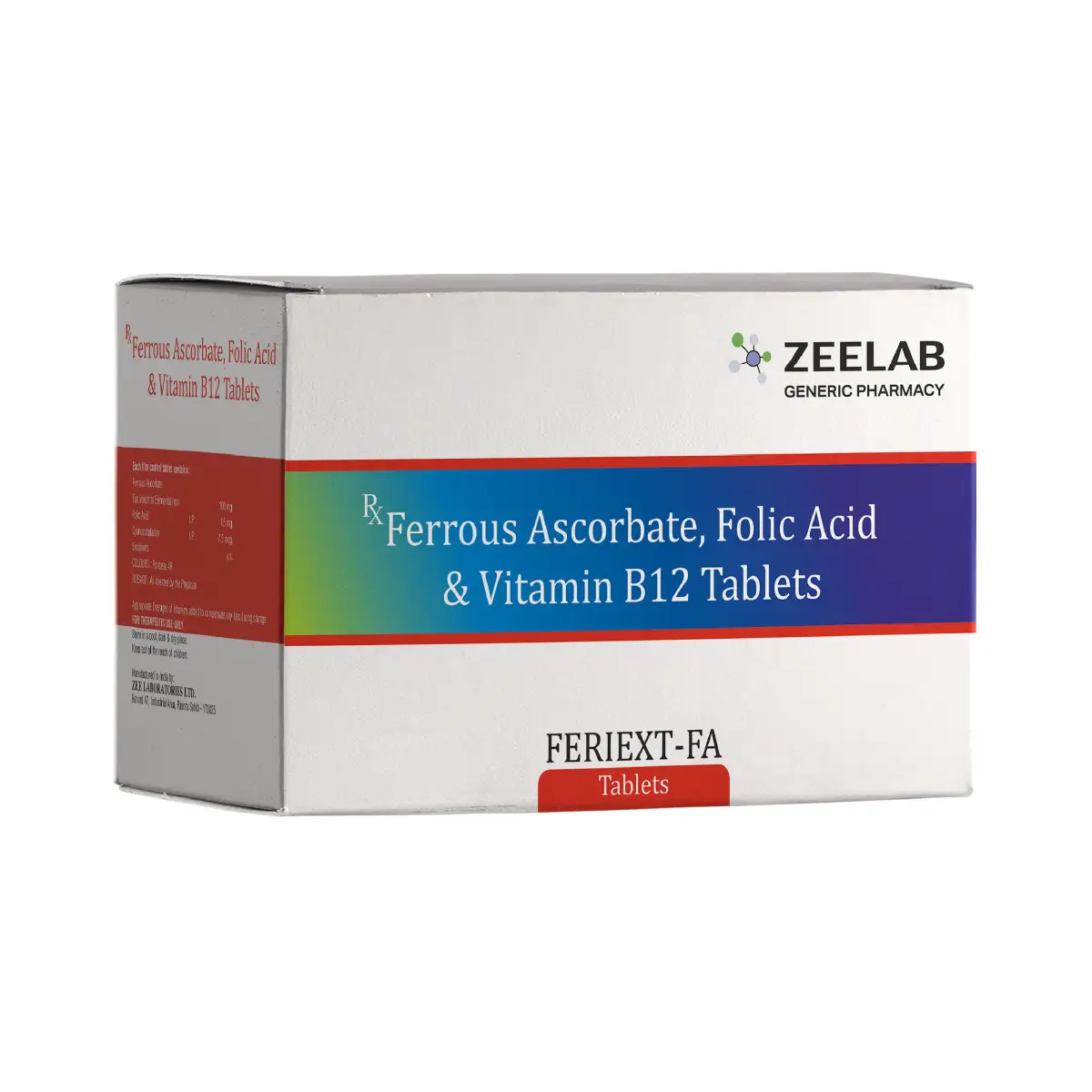
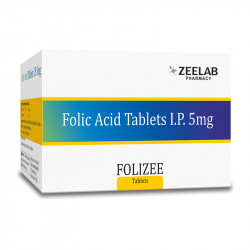
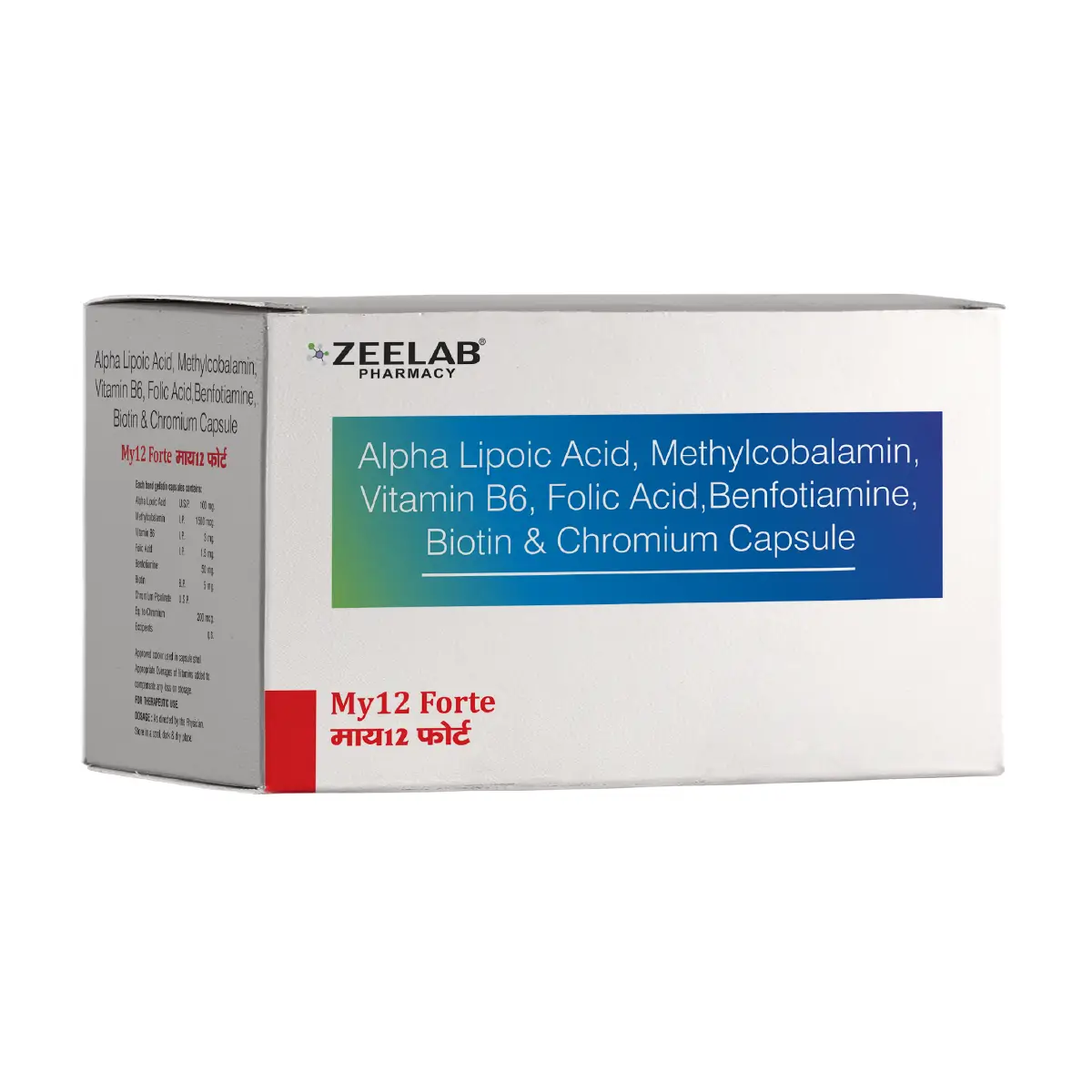
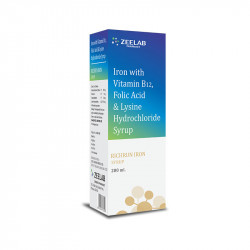
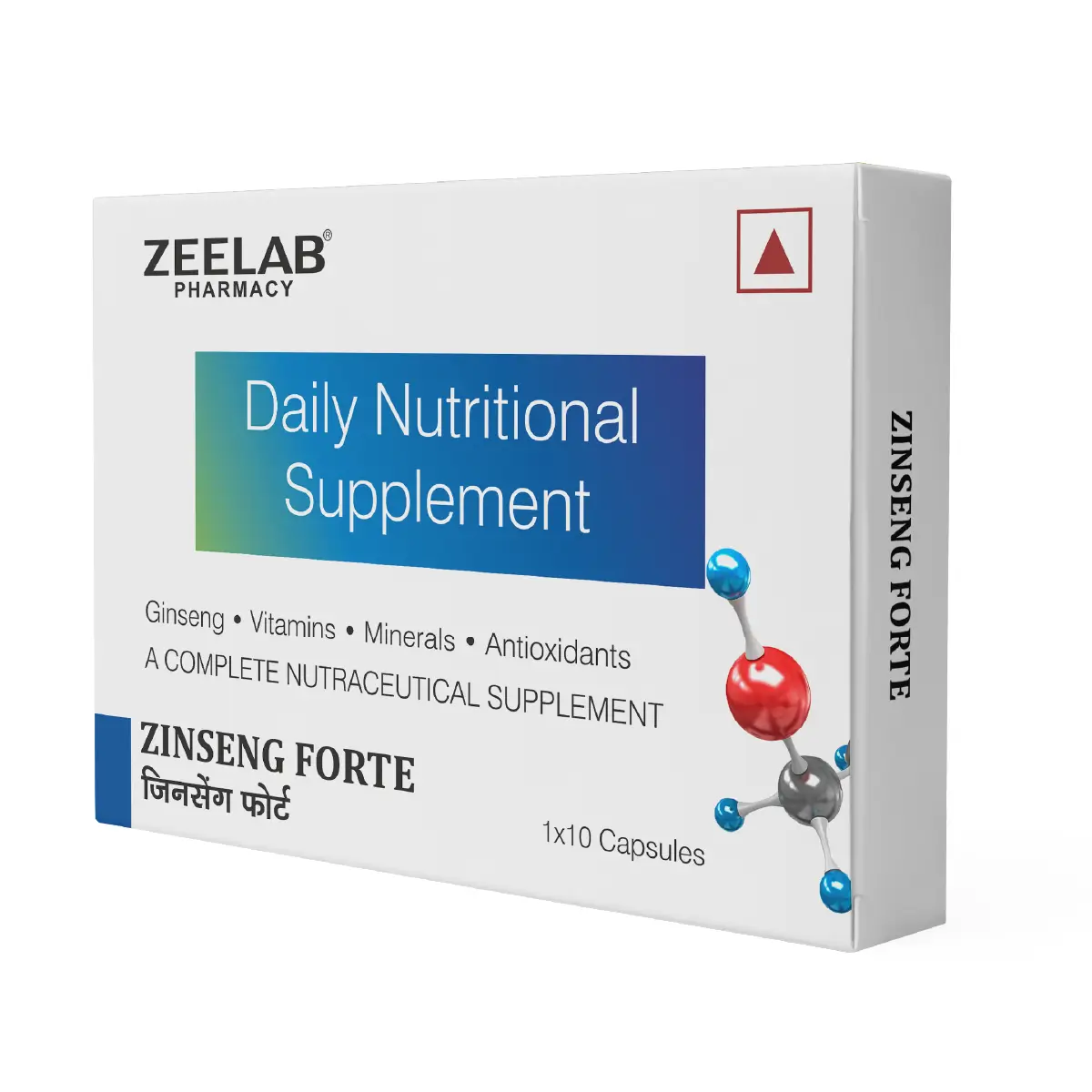















 Added!
Added!